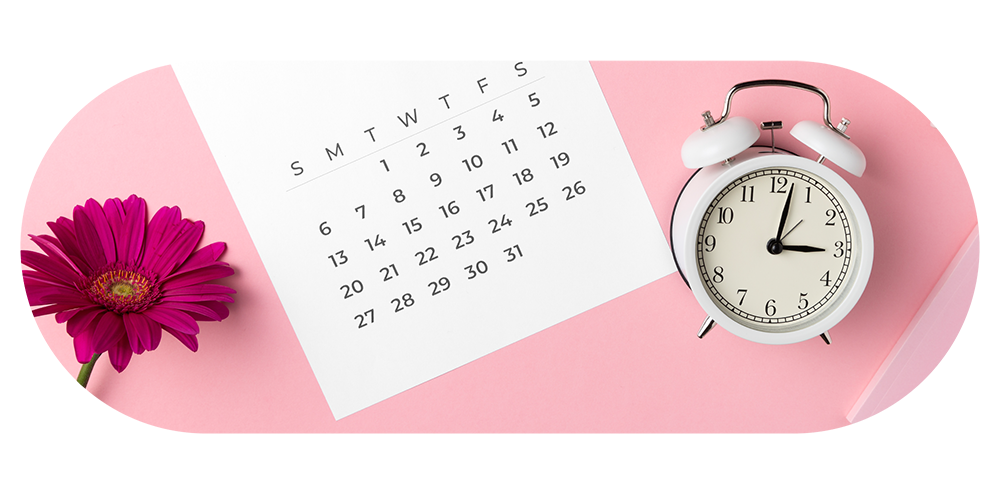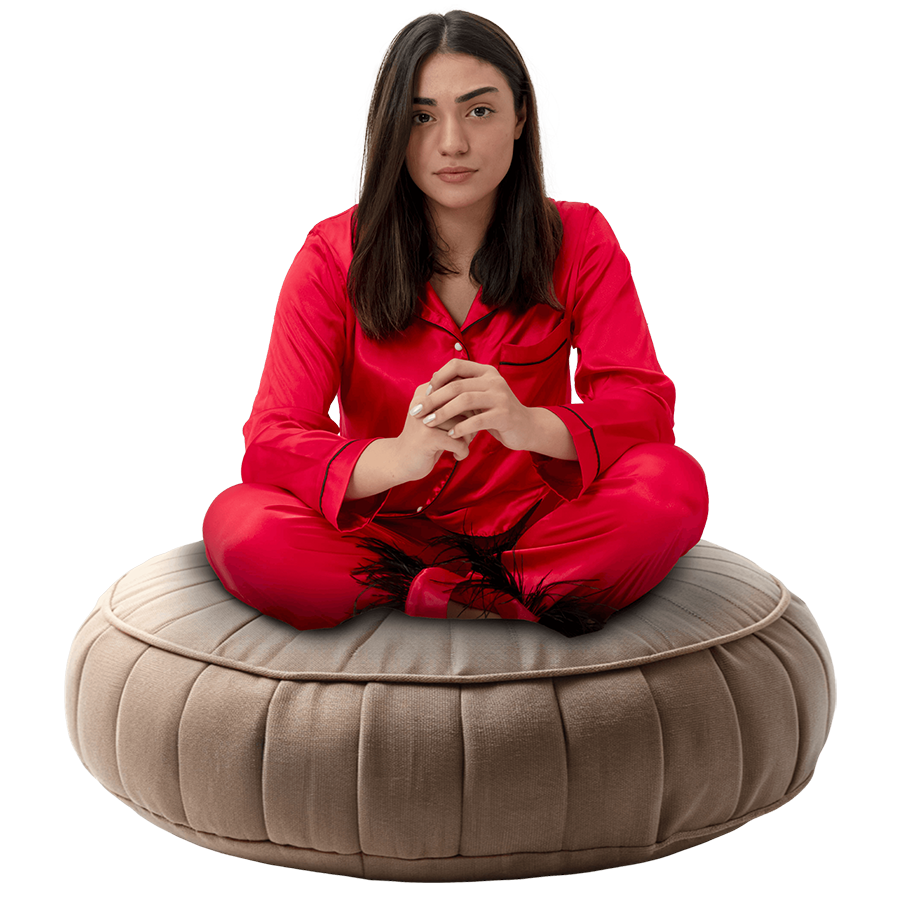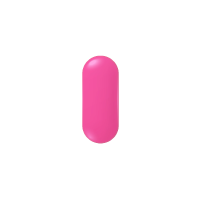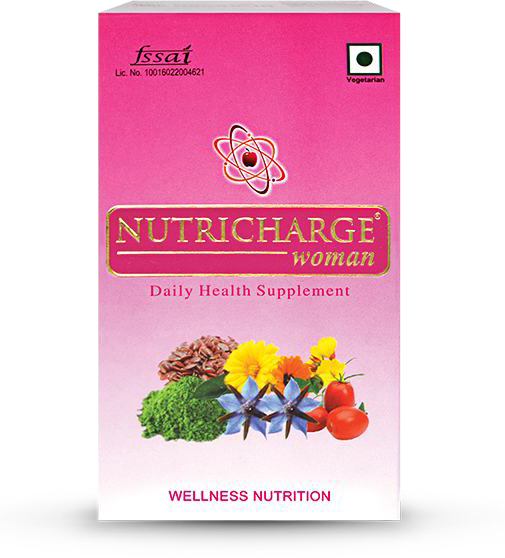
Period
Facts , Problems & Help In Solution

A natural & healthy physiological process
Nature prepares the girl's body for
pregnancy in future
Girls and women get period once a month.
For most, it happens once every 28 days
One period cycle usually lasts from 3
to 7 days
Menstruation (Period) starts from the age
of 11-12 years and ends around the age of
51-52 years
The start of menstruation is called Menarche and the end of menstruation is called Menopause
During adolescence, it is normal for Period to be irregular due to hormonal imbalance. It usually becomes regular with passage of time

The total amount of blood loss
during each menstruation cycle
ranges from
30ml To 180ml*
Pre-menstrual Syndrome

Pre-menstrual Syndrome (PMS)
A cluster of physical, emotional and
psychological symptoms that
usually
appear 1-2 weeks before the Period
Causes
Causes
- Cyclical hormonal changes
- Chemical changes in the brain
- Family history and Bad lifestyle
Effects on the body
Effects on the body
- Headache, swelling in legs and hands
- Pain in the heels or back
- Abdominal bloating and pain
- Tenderness in breasts
- Vomiting, constipation or diarrhea
- Fatigue, Irritability, loss of appetite
- Achne flare-ups


Nutrients that can help in providing relief in pre-menstrual syndrome
Iron, Calcium, Magnesium, Evening Primrose, Starflower Extract, Green tea, Flax seed, Vitamin E, Tryptophan, Zinc, Pomegranate and Blueberry Extract, Lycopene, Vitamin B1, B2, B3, B6 and Vitamin D
Irregular Period

Very less or very heavy blood flow
Menstruation cycle shorter than 21 days or more than 35 days
Causes
Causes
- Abnormal weight
- Polycystic Ovarian Syndrome (PCOS)
- Thyroid
- Perimenopause - before menopause
- Irregular lifestyle - Imbalanced food, insufficient sleep, stress
Effects on the body
Effects on the body
- Anemia (low hemoglobin level)
- Hair-loss
- Acne
- Abnormal increase or decrease in appetite and weight
- Mood swaings


Nutrients that can help in managing irregular Period
Calcium, Magnesium, Vitamin C, Flax seed, Vitamin E, Zinc, Vitamin A, Vitamin
B6, B2, B5, Folic acid, Selenium and Vitamin D
Heavy Blood - flow

Menstrual bleeding for morethan 7 days
Causes
Causes
- Deficiency of iron in blood
- Hormonal Imbalance
- Inflammation and infection in reproductive organs - Pelvic Inflammatory Disease (PID)
- Fibroids or Polyps in uterus
Effects on the body
Effects on the body
- Anemia (low hemoglobin level)
- Abdominal pain
- Fatigue or weakness
- Headache and dizziness
- Difficulty in breathing


Nutrients that can help in providing relief and managing heavy blood-flow during Period
Iron, Calcium, Magnesium, Vitamin C, Vitamin E, Zinc, Vitamin A, Vitamin B-complex and Vitamin K
Pain and cramps

Before and during Period
Causes
Causes
- Trigger of hormone like substances during contractions of uterust
- Pain can increase due to heavy blood clots because of uterine contractions
Effects on the body
Effects on the body
- Inability to work or move
- Irritability
- Inability to perform daily chores
- Pain in lower back, hips and legs
- Constipation or diarrhea
- Abdominal bloating
- Headache, nausea and vomiting


Nutrients that can help in providing relief in pain during Period
Iron, Calcium, Magnesium, Green tea, Evening Primrose, Starflower, Vitamin C, Flax seed, Vitamin E, Zinc, Lycopene, Vitamin B1, Vitamin B12 and Vitamin D
Low Hemoglobin level (Anemia)

In women, normal range of hemoglobin in blood is
between 12 g/dl and 16 g/dl
Causes
Causes
- Heavy blood-flow during Period
- Fibroids in Uterus
- Deficiency of protein, iron, vitamin B12. folic acid and other nutrients in food and their inadequate absorption
Effects on the body
Effects on the body
- Fatigue and weakness
- Stress and irritability
- Paleness in skin and nails
- Hair loss
- Dizziness and difficulty in breathing


Nutrients that can help in Formation of Hemoglobin in the body
Iron, Vitamin C, Vitamin E, Vitamin A, Vitamin B6, Copper, Vitamin B2, Folic acid and Vitamin B12
Very less blood-flow
(Light Period)

Blood-flow for less than 2 days and
less than 30 ml
Causes
Causes
- Stressful lifestyle
- Deficiency of nutrients and antioxidants
- Very less body weight
- Deficiency or imbalance of female hormones
Effects on the body
Effects on the body
- Anemia (low hemoglobin level)
- Inadequate nurturing of uterus and reproductive organs
- Lower than normal fertility


Nutrients that can Help in Formation of hemoglobin and normal blood-flow during Period
Iron, Calcium, Magnesium, Evening Primrose, Starflower, Vitamin C, Flax seed, Vitamin E, Zinc, Lycopene, Vitamin A, Vitamin B-complex, Folic acid, Copper and Vitamin D





